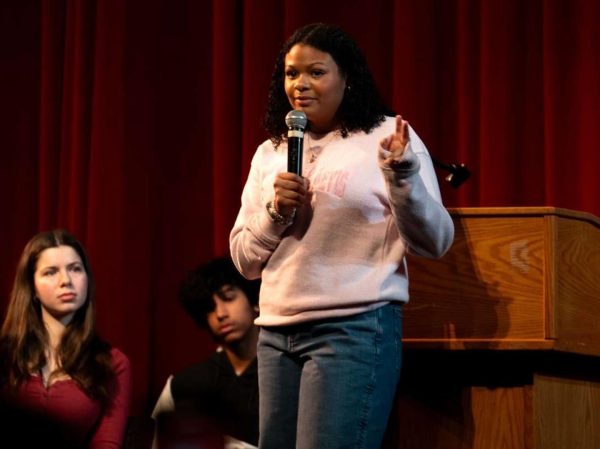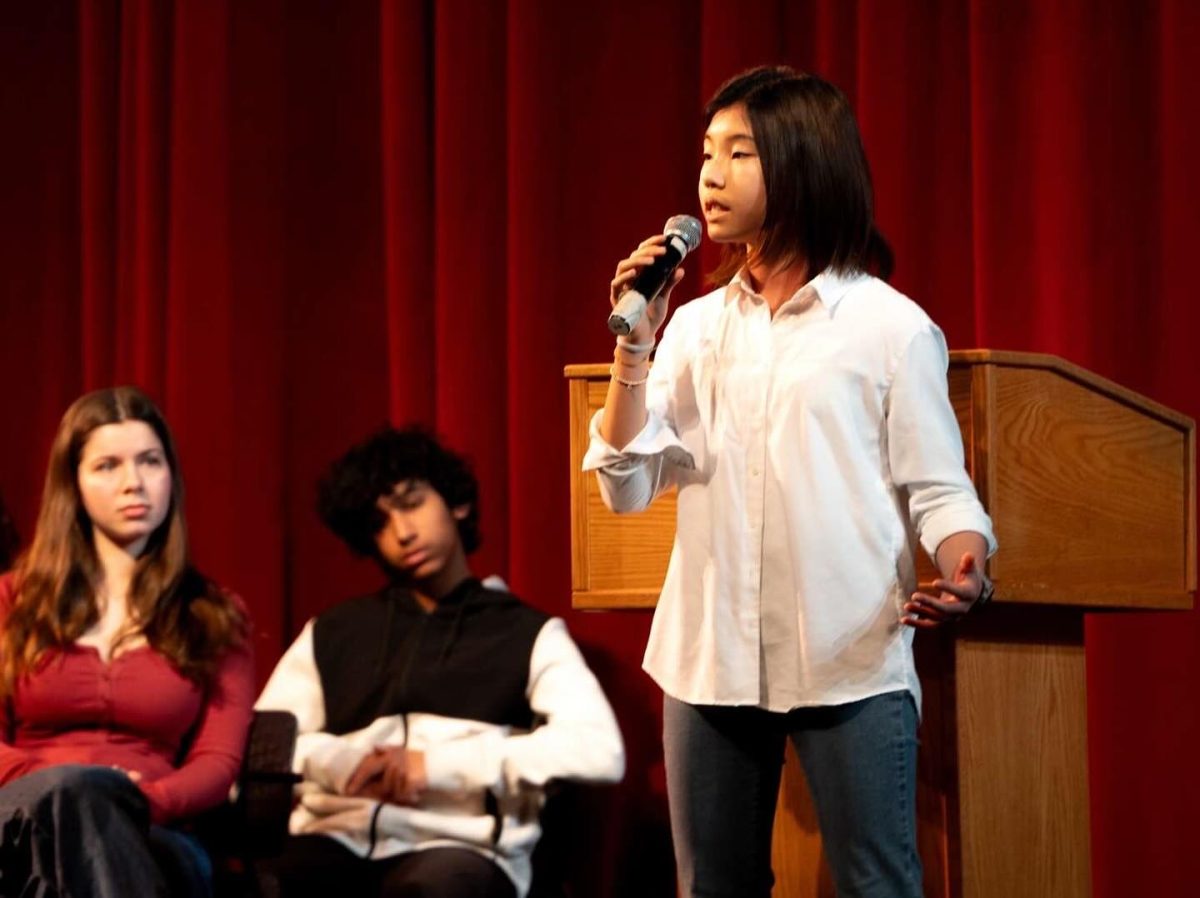The annual Sophomore Speech Showcase, held Friday, Jan. 24, in the Lasker Auditorium, honored Martin Luther King Jr. and encouraged students to use their voices to inspire change.
The finalists, TJ Droz, Dylan Holler, Amy Lee, Kira Levin, Kassidy Marks, Taishon Mitchell-Recce, Isabel Morse, and Kira Levin, performed their speeches in front of the sophomore class during WIN.
The seven finalists were chosen by a panel of judges who listened to the speeches of all class representatives before selecting the winners.
The finalists spoke on a variety of topics important to them that they hoped to make the student body aware of, such as substance abuse, racism, eating disorders, slut-shaming, and feminism.
Droz began the showcase with his speech, titled “A Struggle With Addiction,” highlighting his personal struggle with losing his father to substance abuse.
According to Droz, his experience was not rare, as one million deaths have occurred in the United States due to substance abuse and overdose.
Lee delivered a speech titled “Myths Can Kill,” and explained how misinformation and stereotypes downplay the threat of eating disorders.
Lee explained how myths regarding eating disorders prevent people from seeking the help they need, and how that can increase the fatality of such diseases.
“Today there are so many myths and misinformation going on about mental health so I thought it was important for people to be aware of it,” said Lee.

Morse compared microaggressions and racism to bee stings, in her speech titled “Bee Stings.”
Morse spoke about her personal experiences with racism in contrast to those of her bi-racial mom.
Morse explained the long-term harmful effects of microaggressions, comparing them to bee stings in that one may not be a big deal but many can be deadly.
Marks wrote a speech titled “Slut Shaming,” which discussed the effects of slut-shaming on girls and women.
According to Marks, the topic is important to her because “not only does it severely impact girls’ mental health and self-worth but it also perpetuates a lot of negative ideas about women.” She added, “I want people to walk away from my speech with a better understanding of the impact using derogatory language has on girls and women”.
Levin discussed issues surrounding feminism in her speech “Feminism isn’t a bad word”. Through her speech, Levin discussed how people avoid talking about feminism despite its importance.
In Hollars’s speech titled “I Am Real”, she spoke about the struggle of interracial adoption. According to Hollar, she chose this topic because it is personal to her and she believes people lack awareness on the issue.
“I hope my speech made others acknowledge the diversity of identities and family dynamics we have in our community and become more willing to learn about others,” said Hollar.
In Mitchell-Reece’s speech “More Than Inclusion,” he discussed his experiences as a Boston Metco student.
Mitchell-Reece Compared his experiences to those of Ruby Bridges. He said that through his experience living in Boston and attending school in Newton, he feels “tolerated but not appreciated.”
In his speech, Mitchell-Reece explained how as a community we should make an effort to celebrate those who are different from us rather than just tolerating them.
According to Marks, the speech process taught her the importance of considering the audience and tailoring her speech to captivate the class. According to Hollar, the use of different appeals and rhetorical devices strengthened the speeches and created a larger impact on the audience.
“I learned what makes the difference between a great writing piece and a great speech,” said Hollar.
The showcase gave all class representatives who weren’t chosen as finalists a chance to tell the grade what their speech was about and why the topic was important to them, following the main speakers.








































